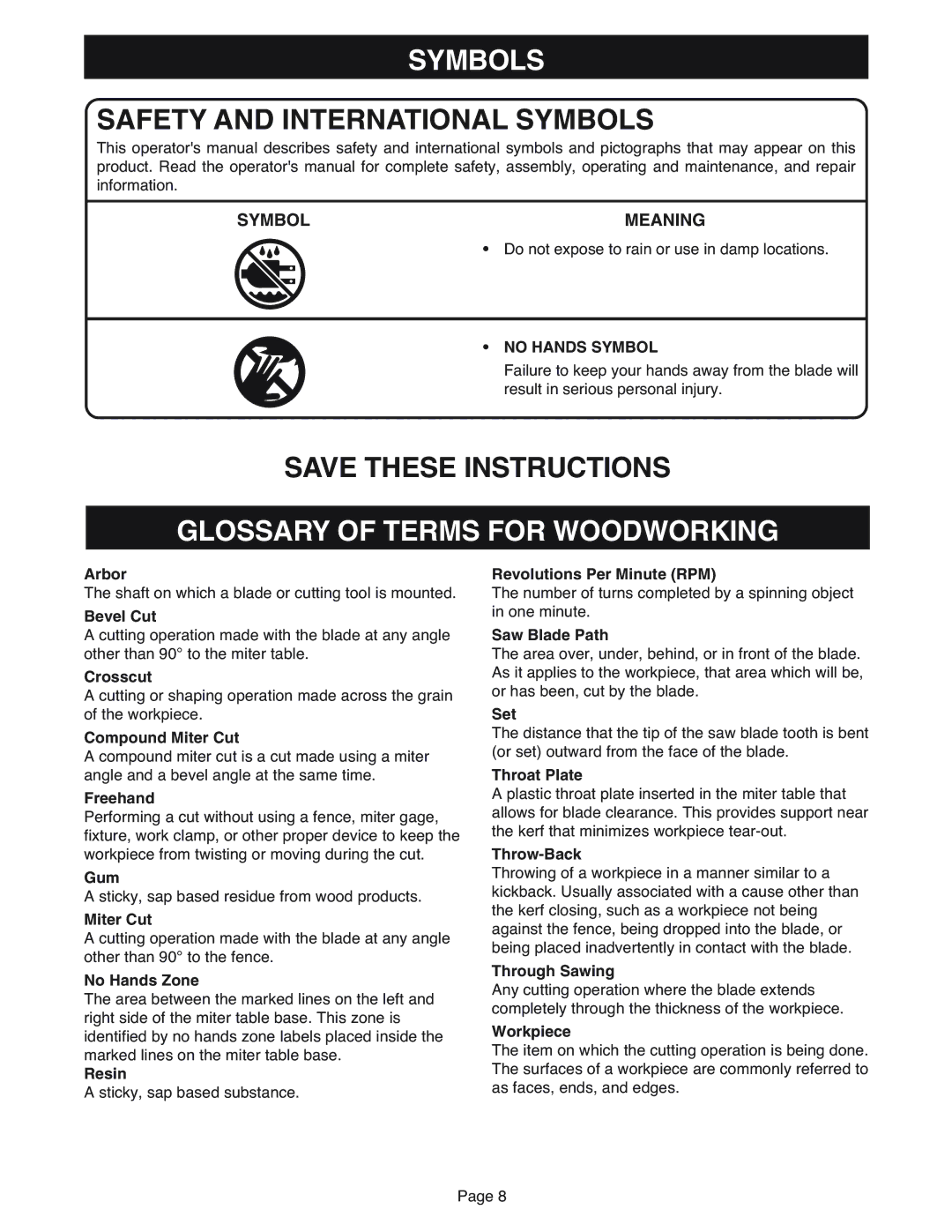
SYMBOLS
SAFETY AND INTERNATIONAL SYMBOLS
This operator's manual describes safety and international symbols and pictographs that may appear on this product. Read the operator's manual for complete safety, assembly, operating and maintenance, and repair information.
SYMBOL | MEANING |
• Do not expose to rain or use in damp locations.
• NO HANDS SYMBOL
Failure to keep your hands away from the blade will result in serious personal injury.
SAVE THESE INSTRUCTIONS
GLOSSARY OF TERMS FOR WOODWORKING
Arbor
The shaft on which a blade or cutting tool is mounted.
Bevel Cut
A cutting operation made with the blade at any angle other than 90° to the miter table.
Crosscut
A cutting or shaping operation made across the grain of the workpiece.
Compound Miter Cut
A compound miter cut is a cut made using a miter angle and a bevel angle at the same time.
Freehand
Performing a cut without using a fence, miter gage, fixture, work clamp, or other proper device to keep the workpiece from twisting or moving during the cut.
Gum
A sticky, sap based residue from wood products.
Miter Cut
A cutting operation made with the blade at any angle other than 90° to the fence.
No Hands Zone
The area between the marked lines on the left and right side of the miter table base. This zone is identified by no hands zone labels placed inside the marked lines on the miter table base.
Resin
A sticky, sap based substance.
Revolutions Per Minute (RPM)
The number of turns completed by a spinning object in one minute.
Saw Blade Path
The area over, under, behind, or in front of the blade. As it applies to the workpiece, that area which will be, or has been, cut by the blade.
Set
The distance that the tip of the saw blade tooth is bent (or set) outward from the face of the blade.
Throat Plate
A plastic throat plate inserted in the miter table that allows for blade clearance. This provides support near the kerf that minimizes workpiece
Throw-Back
Throwing of a workpiece in a manner similar to a kickback. Usually associated with a cause other than the kerf closing, such as a workpiece not being against the fence, being dropped into the blade, or being placed inadvertently in contact with the blade.
Through Sawing
Any cutting operation where the blade extends completely through the thickness of the workpiece.
Workpiece
The item on which the cutting operation is being done. The surfaces of a workpiece are commonly referred to as faces, ends, and edges.
Page 8
